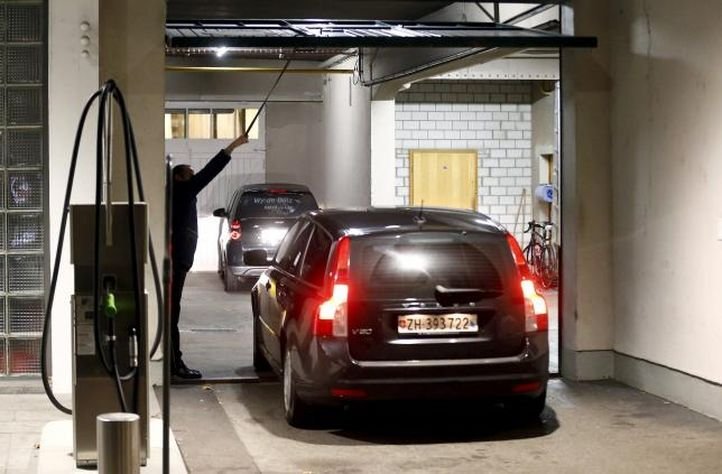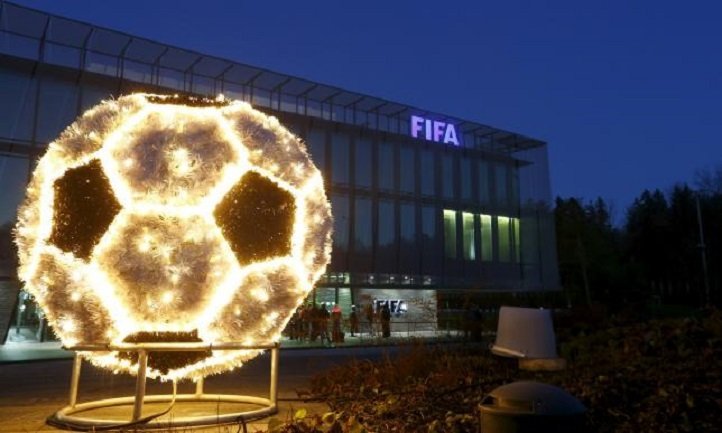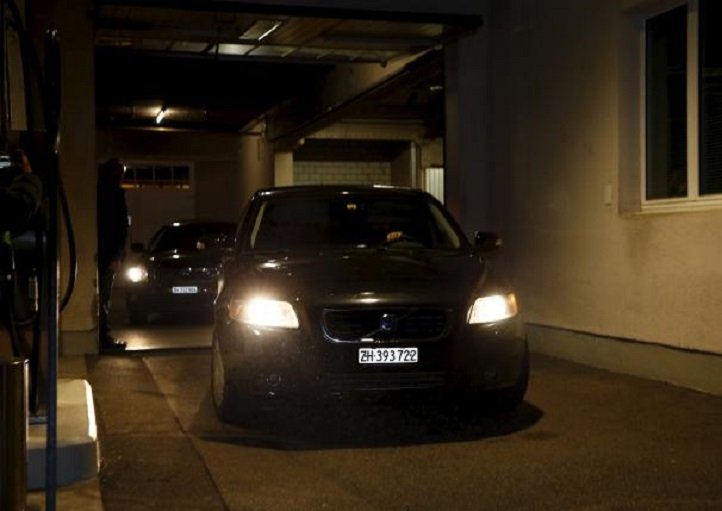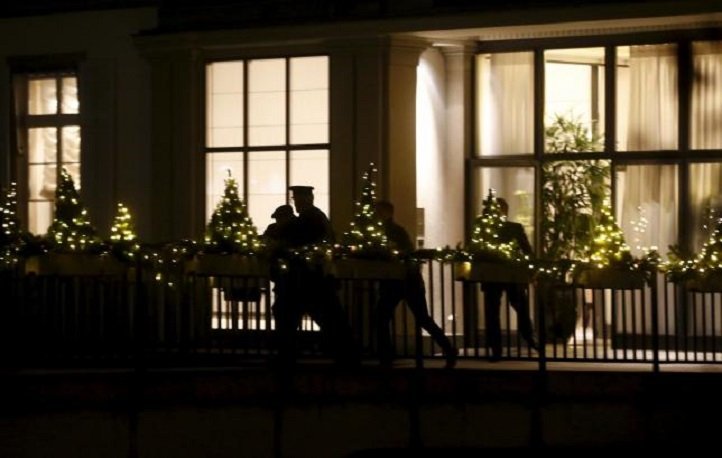Swiss police arrested the two top soccer bosses in the Americas on Thursday on suspicion of taking millions of dollars in bribes linked to television rights, widening a graft probe into world soccer’s governing body.Switzerland’s Federal Office of Justice (FOJ) named the men as Alfredo Hawit of Honduras, acting president of the CONCACAF federation and a FIFA vice president, and Juan Angel Napout of Paraguay, head of the South American soccer federation CONMEBOL. CONCACAF administers soccer in North and Central America and the Caribbean.The officials were detained in pre-dawn raids at the behest of the U.S. Department of Justice. The FOJ said it would now ask the United States to submit a formal extradition request within 40 days, which both men had said they would resist.

It said they were alleged to have taken money “in return for selling marketing rights in connection with soccer tournaments in Latin America, as well as World Cup qualifying matches”.The raid on the Baur au Lac hotel in Zurich echoed arrests at the same place in May that plunged FIFA into crisis.Since then, FIFA’s veteran president Sepp Blatter has announced his resignation, he and other officials have been suspended, and a host of criminal probes into FIFA officials have begun, triggering huge external pressure for deep reforms.The two arrested men, their representatives and their federations were not immediately available for comment.The past two CONCACAF heads before Hawit have both been indicted by U.S. authorities. When he was named head of the confederation in May, he said he was “profoundly disappointed by the allegations made by authorities that again, CONCACAF has been the victim of fraud”. Avalanche of allegations
The avalanche of corruption allegations prompted Blatter in June to say he would resign, only days after being re-elected to a fifth term. He, his deputy Jerome Valcke and European soccer boss Michel Platini have all been suspended by an internal ethics watchdog. None of them has been charged with a crime, and all deny any wrongdoing.

Swiss authorities said Thursday’s arrests were related to alleged offences agreed and prepared in the United States and involving payments processed by U.S. banks, which were not named.In May, U.S. authorities charged 14 officials and sports marketing executives with paying or taking bribes.The New York Times said the latest action targeted current and former senior soccer officials on charges including racketeering, money laundering and fraud.The Baur au Lac closed its gates after a group of four people, believed to be plainclothes police, went in around 6 a.m. (0000 ET), a Reuters witness said.Another group of police then went in through the rear entrance and left half an hour later. Shortly afterwards, two cars with obscured windows were seen leaving the hotel.FIFA officials routinely use the luxury lakeside hotel and many were in Zurich for an executive committee meeting at which an internal reforms committee was presenting recommendations.

Leading FIFA sponsors Anheuser-Busch InBev NV, Adidas, Coca-Cola, McDonald’s Corp and Visa Inc on Tuesday published an open letter demanding independent oversight of the reform process. Cooperation promised In response to the latest arrests, FIFA pledged to continue to cooperate fully with U.S. and Swiss justice authorities.CONCACAF said the developments would only strengthen its determination to enact “significant structural and governance changes to the organization, including … fundamentally changing how it conducts business”.U.S. Department of Justice officials were to discuss the case at a news conference in Washington later on Thursday.
In parallel investigations, Swiss and U.S. authorities are focusing on whether certain business contracts or the World Cup hosting rights for 2018 and 2022 were won with the help of bribery.Wednesday marked five years since FIFA’s executive committee awarded the respective rights to Russia and Qatar.

People are silhouetted outside the Baur au Lac hotel where Swiss police arrested FIFA officials, in Zurich, Switzerland December 3, 2015 | Source: Reuters The choice of Qatar, a small desert state where summer daytime temperatures rarely fall below 40 degrees Celsius (104 Fahrenheit), was especially contentious and went against the advice of FIFA’s own technical committee.Several South American national soccer chiefs have quit posts in recent weeks. Last week, Marco Polo Del Nero, head of the Brazilian Football Confederation, quit FIFA’s executive committee, shortly before FIFA’s ethics committee opened formal proceedings against him.Also last month, the president of the Colombian Football Federation, Luis Bedoya, resigned unexpectedly as a government source said he had flown to New York. The president of Chile’s ANFP national soccer association, Sergio Jadue, also stepped down, and Chilean media said he had gone to the United States to talk to the FBI.

















